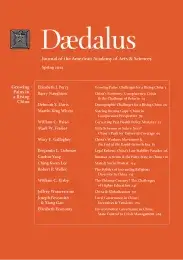Internet Activism & the Party-State in China
The history of Internet activism and Internet control in China is one of mutual adaptation between citizen activists and party authorities. The party-state initially reacted to Internet activism with alarm, but has since built a comprehensive approach combining repressive policing with gentler methods of social management. This approach has evolved in response to the diverse forms of and participants in Internet activism. But the adaptability of the Chinese Internet control regime does not mean that it will root out Internet activism. On the contrary, Internet activism will continue to grow and will itself adapt to the changing forms of control. Comparisons with Russia and the United States highlight how political economy, history, and everyday practice shape the forms of Internet activism and control.
